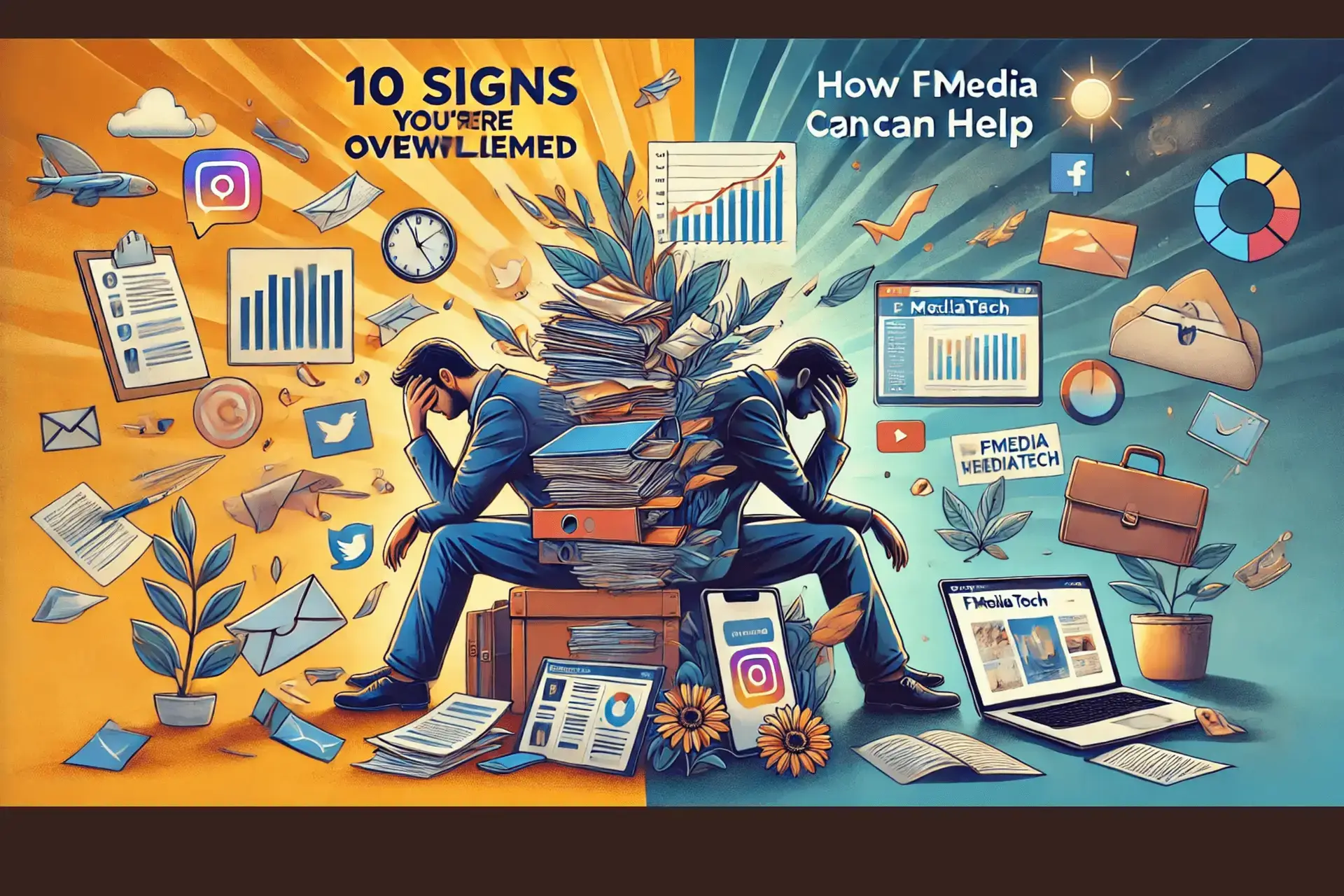Introduction
Let’s face it—competing in today’s digital landscape can feel overwhelming, especially for small businesses. You’re up against larger competitors with bigger budgets, all vying for the same online attention. Yet, there’s a secret weapon you can use to level the playing field: Search Engine Optimisation (SEO).
SEO isn’t just for big corporations; it’s essential for businesses of every size, especially small ones that rely on local customers and organic search traffic to thrive. By optimising your website and digital presence, you can increase your visibility and attract the right audience without breaking the bank.
In this article, you’ll learn five practical SEO tips that every small business owner should know. These tips will help you get noticed, attract local customers, and boost your online presence. Let’s get started!
Tip 1 – Focus on Local SEO
If your small business serves a specific community or region, local SEO is your best friend. Local SEO helps you connect with nearby customers who are searching for products or services like yours. It ensures your business appears in local search results, making it easier for customers to find and choose you over competitors.
Optimise Your Google My Business Profile
Google My Business (GMB) is a must-have tool for local SEO. By creating and optimising your GMB profile, you increase your chances of showing up in local search results and Google Maps.
Here’s how to optimise your GMB profile:
- Complete all sections: Ensure your business name, address, phone number (NAP), website, and business hours are accurate and consistent.
- Select the right categories: Choose categories that best describe your business to help customers find you.
- Add photos: High-quality images of your location, products, and services create a great first impression.
- Post updates: Share news, offers, or events to keep your profile active and engaging.
Encourage Customer Reviews
Customer reviews aren’t just social proof—they’re a ranking factor for local SEO. Positive reviews signal to search engines that your business is trustworthy and popular.
To gather reviews:
- Politely ask satisfied customers to leave feedback.
- Provide direct links to your GMB review page in follow-up emails or receipts.
- Respond to reviews promptly to show you value customer feedback.
Leverage Location-Based Keywords
Incorporate location-specific keywords into your website and content to attract local customers. For example, instead of “plumbing services,” use “plumbing services in Manchester.”
Use tools like Google Keyword Planner or Ubersuggest to identify popular local keywords. Then, add them strategically to:
- Your website’s title tags and meta descriptions.
- Blog posts and service pages.
- Alt text for images.
By focusing on local SEO, you make it easier for nearby customers to find your business and choose you over competitors.
Tip 2 – Optimise Your Website for Mobile Users
With over half of all web traffic coming from mobile devices, having a mobile-friendly website is no longer optional—it’s essential. Search engines like Google prioritise mobile-friendly websites, and failing to optimise yours could mean losing potential customers to competitors.
Why Mobile-Friendly Websites Matter
Imagine a potential customer searching for your business on their phone, only to land on a website that’s hard to navigate or slow to load. Chances are, they’ll leave and choose a competitor instead. Mobile usability doesn’t just improve user experience—it’s also a key factor in SEO rankings.
How to Check Your Website’s Mobile-Friendliness
Not sure if your site is mobile-friendly? Use Google’s Mobile-Friendly Test tool. It analyses your website and provides suggestions to improve its mobile performance.
Tips to Improve Mobile Usability
- Adopt Responsive Design: Responsive websites automatically adjust their layout to fit different screen sizes, ensuring a seamless experience on desktops, tablets, and smartphones.
- Simplify Navigation: Use a clear, intuitive menu and avoid clutter. Make it easy for visitors to find what they need.
- Optimise Page Speed: Mobile users expect fast load times. Compress images, minimise code, and leverage browser caching to reduce load times.
The Role of Page Speed in Mobile SEO
Google values page speed as a ranking factor. A slow website not only frustrates users but also reduces your chances of ranking higher in search results.
Tools like Google PageSpeed Insights can help you identify speed issues and offer solutions, such as:
- Reducing image file sizes.
- Eliminating unnecessary plugins or scripts.
- Using a reliable hosting provider.
By focusing on mobile optimisation, you’ll enhance user experience, improve your SEO rankings, and make it easy for customers to connect with your business on the go.
Tip 3 – Create High-Quality Content
Content is at the heart of SEO. It’s how you attract, inform, and engage your audience. High-quality content not only helps your website rank better but also builds trust and positions your business as an authority in your industry.
Why Content is King
Search engines reward websites that deliver value to users. That means creating content that answers questions, solves problems, or entertains. Whether it’s a blog post, video, or FAQ page, your content should be tailored to your audience’s needs and interests.
Balancing User Intent with Keyword Optimisation
Effective content strikes a balance between what users want and what search engines are looking for. Start by identifying your audience’s intent—are they looking to learn, compare options, or make a purchase? Then, incorporate relevant keywords naturally throughout your content.
Content Types to Focus On
For small businesses, some of the most effective content types include:
- Blog posts: Share industry tips, how-to guides, or news relevant to your business.
- Videos: Create engaging content like product demos or customer testimonials.
- FAQs: Address common customer questions to improve user experience and rankings.
Posting consistently is just as important as quality. A regular schedule keeps your audience engaged and shows search engines that your website is active.
Incorporate Keywords Strategically
When adding keywords to your content:
- Focus on long-tail keywords that reflect specific user queries (e.g., “eco-friendly cleaning services in Leeds”).
- Use keywords in headings, subheadings, and meta descriptions.
- Avoid keyword stuffing—it can harm your rankings and turn off readers.
Engage in Content Marketing
Publishing great content is just the start. Share it across your social media platforms, include it in email newsletters, and consider guest posting on other websites in your niche. These efforts amplify your reach and bring more traffic to your site.
By creating high-quality content, you’ll not only improve your SEO rankings but also build lasting relationships with your audience.
Tip 4 – Build a Strong Backlink Profile
Backlinks—links from other websites to yours—are like votes of confidence for your site. They signal to search engines that your content is valuable and trustworthy, boosting your rankings. For small businesses, building a strong backlink profile can make a significant difference in SEO performance.
Quality Over Quantity
Not all backlinks are created equal. A handful of links from reputable, high-authority websites is far more valuable than dozens of links from low-quality sites.
To earn quality backlinks:
- Collaborate with local businesses: Partner with complementary businesses and ask for links from their websites.
- Write guest posts: Contribute articles to reputable blogs in your industry.
- Create shareable content: Infographics, guides, and unique insights are more likely to be linked to by others.
Leverage Local Business Directories
Adding your business to local directories like Yelp, Yellow Pages, and industry-specific sites not only helps customers find you but also boosts your local SEO.
For consistent and effective directory listings:
- Ensure your NAP (Name, Address, Phone Number) is accurate and matches your website.
- Use your business’s primary keywords in descriptions.
- Regularly update your listings to reflect any changes.
Outreach to Local Influencers
Influencers aren’t just for global brands. Local influencers, such as bloggers, social media personalities, or community leaders, can help promote your business and generate backlinks.
Here’s how to connect with them:
- Offer to collaborate on projects or events.
- Provide free products or services in exchange for honest reviews.
- Highlight their work on your platforms to build goodwill.
By focusing on quality backlinks and leveraging local resources, you’ll build authority and drive more organic traffic to your website.
Tip 5 – Track and Analyse Your SEO Performance
SEO is not a one-and-done process. To get the best results, you need to track your progress, analyse what’s working, and adjust your strategy as needed. Monitoring your SEO performance helps you make data-driven decisions and ensures you’re investing time and effort in the right areas.
Key Metrics to Monitor
Start by keeping an eye on these essential metrics:
- Organic Traffic: The number of visitors coming to your site from search engines.
- Bounce Rate: How often users leave your site after viewing just one page. A high bounce rate can indicate poor user experience.
- Keyword Rankings: Track how your target keywords are performing in search results.
- Conversion Rate: The percentage of visitors who take a desired action, such as making a purchase or filling out a form.
Use Google Search Console
Google Search Console is an invaluable tool for tracking your website’s performance. It provides insights into:
- Keyword Performance: Which keywords are driving traffic and where you rank for them.
- Site Issues: Detect and fix issues like broken links or slow-loading pages.
- Click-Through Rates (CTR): See how often users click on your site in search results.
Monitor Your Competitors
Keeping an eye on competitors can reveal opportunities and help you refine your strategy. Tools like Ahrefs, SEMrush, or Moz allow you to:
- Analyse their backlink profiles.
- Identify high-performing keywords they’re targeting.
- Spot content gaps you can fill.
Adjust Strategies Based on Data
SEO isn’t static—search engine algorithms change, and so does user behaviour. Use the insights you gain to:
- Optimise underperforming pages.
- Focus more on successful keywords or content types.
- Experiment with new strategies, like targeting emerging keywords or creating different types of content.
By regularly tracking and analysing your SEO performance, you can stay ahead of the curve and ensure your efforts are driving real results.
Conclusion
SEO can seem daunting, especially for small businesses juggling multiple priorities. But by focusing on the five key areas outlined here—local SEO, mobile optimisation, high-quality content, strong backlinks, and performance tracking—you can significantly improve your online visibility without overwhelming your resources.
Start small: optimise your Google My Business profile, create user-focused content, and monitor your website’s performance. Each step builds on the last, creating a foundation for long-term growth.
Need help? FmediaTech is a digital agency specialising in website optimisation, design, and development. Whether you’re looking to create a new website, improve your existing one, or develop a comprehensive SEO strategy, FmediaTech can provide the expertise to help your small business thrive online.
The digital world is competitive, but with consistent SEO efforts—and the right support—you can stand out and attract the customers you deserve. Start implementing these tips today, and watch your online presence grow!
FAQs
1. What is SEO, and why is it important for small businesses?
SEO, or Search Engine Optimisation, is the process of improving your website’s visibility in search engine results. For small businesses, it’s essential because it drives organic traffic, connects you with local customers, and boosts your credibility online.
2. How much time does it take for SEO to show results?
SEO is a long-term strategy. While some changes, like local SEO improvements, can show results in weeks, broader efforts like content creation and backlink building may take several months to deliver significant outcomes.
3. Can I handle SEO for my business without professional help?
Yes, especially if you’re just starting. Many SEO basics, like optimising your Google My Business profile or creating content, can be done in-house. However, for more advanced strategies or competitive industries, hiring a professional agency like FmediaTech can provide you with expert guidance and quicker results.
4. What are the most common mistakes small businesses make in SEO?
- Ignoring local SEO.
- Using outdated or black-hat techniques (e.g., keyword stuffing).
- Neglecting mobile optimisation.
- Failing to track and adjust strategies based on performance data.
5. How often should I update my website’s content for SEO purposes?
Regular updates signal to search engines that your site is active. Aim to refresh or add new content at least once a month, whether it’s blog posts, updated service pages, or FAQs. If you need support, FmediaTech offers content strategies to keep your site engaging and optimised.



